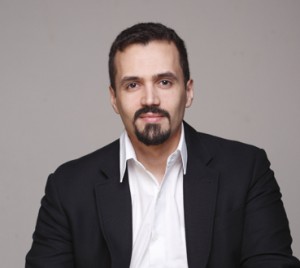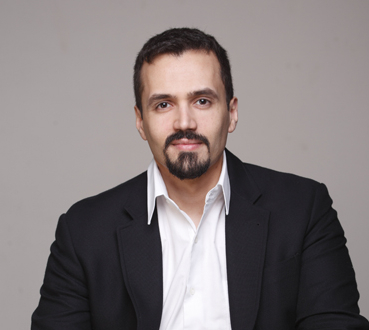
This time last year, Egyptians were a week away from the disastrous extra-judicial decree of then president, Mohamed Morsi. Everyone knew, however, even without that decree, that the Muslim Brotherhood-led government had not the faintest idea (or perhaps intention) on how to govern inclusively. In a country that desperately needed consensus in order to simply maintain a path of reform (let alone actually implement any such reforms), such an approach eventually led to Morsi’s downfall, and the suspension of the democratic process altogether. It seems, however, that the idea of inclusion, and the corresponding one that relates to respect for diversity, is still not on the table in a real sense for Egyptian citizens. Indeed, it appears Egyptians now have to deal with yet more exclusion, and yet more contempt for diversity.
When the Muslim Brotherhood was the dominant political force in Egypt, there were plenty of signs that were quite worrying when it came to inclusion. Much of it was about religious identity – the discourse that was allowed to permeate, directly and indirectly, which problematised and demonised religious communities that were not pro-government, was intense. The sectarianism that the Muslim Brotherhood itself demonstrated, along with its supporters in other Islamist political formations, was clear, particularly with regards to Coptic Egyptians and Shi’a Egyptians.
There have been numerous examples documented since the beginning of the revolution in February 2011 – and even when in power, the Muslim Brotherhood did not shy away from such discourse. Claims that, for example, 60% of the protesters at the presidential palace were Christian (stated by the now imprisoned Mohamed Al-Beltagy of the Muslim Brotherhood); the inflammatory rhetoric expressed on the Rabaa stage before the violent crackdown, which laid the groundwork for extremely vicious actions against Christian communities later on; and the use of sectarian slogans in marches (Egypt is “Islamic”, for example), that find themselves spray painted on churches in the midst of pro-Morsi marches.
When it came to Shi’a Egyptians, the now infamous presence of Morsi at a radical Islamist rally, where vicious slogans vis-à-vis Shi’as were expressed without any objection from the then president, is now widely regarded as contributing to an environment where it was possible for Shi’a Egyptians to be lynched in Giza. On the political level, the marginalisation and exclusion of non-Islamist political forces (including violent clashes with other, non-Islamist Muslims), despite the fact it was these forces that were essential in ensuring a Morsi victory over Shafiq in the presidential elections last year, was clear for months from within. It was also clear from without, particularly among European Union officials, who were trying desperately for months to broker a deal that would minimise at least that kind of polarisation.
All of that kind of exclusionary rhetoric from the Islamist camp is clear – and one has to keep that in mind. However, as distasteful as that sort of discourse is, it is not the only type of exclusion that is currently being passed through the Egyptian public sphere. On the contrary – there is a rhetoric and discourse vis-à-vis Islamists that now pervades the highest levels of the public arena, which is a deeply pressing issue, considering the loss of life that has taken place in Egypt over the last four months. It does, of course, take different forms – there is a discourse for those who accept the powers that be, such as the Salafi Nour party, for example. It’s not a particularly inclusive or respective discourse, where those who support the Nour party are regarded as necessarily uneducated or poor (which simply does not hold up when one looks at the different studies on voting patterns in Egypt) – but it is far better than the more extremist type of discourse.
That kind of discourse is reserved for those Islamists who reject the current political framework: primarily the Muslim Brotherhood, who insist on “legitimacy” and so forth. The claims of “legitimacy” and the like are, of course, rather preposterous – but it’s not hate speech to claim Morsi continues to have legitimacy. It’s not hate speech for a footballer or a kung fu competitor to flash the Rabaa four fingered salute – and neither ought to be penalised for such things, unless they would also be penalised for exhibiting any other political symbol. One imagines that wearing pro-army insignia would probably not attract the same attention.
The discourse goes further, and it has costs. The discourse describes these types of Islamists as “non-Egyptian”, as they have supra-national considerations due to their commitment to the Islamist project – strangely enough, the same sort of judgment is rarely, if ever, applied to Nasserite Egyptians, who obviously have supra-national, Arab nationalist dreams. Again, all of this serves to dehumanise this portion of Egyptian society – and it does have costs. It is precisely this sort of discourse that has made it possible for Egypt to witness the most violent state crackdown against Egyptian citizens in modern history – with few voices expressing their objections. Had it been the Muslim Brotherhood-led government who had cracked down on protesters in the same way this current government has done in the past few months, even if those protests had some weapons within them, one imagines that the public uproar would have been very different. On 6 October, where more than 50 unarmed pro-Morsi protesters were killed in clashes with the security forces, not even the Ministry of Interior claimed the protesters had weaponry – but the public outrage against the deaths was minimal. Discourse can, indeed, lead to death.
There is a final type of exclusion that ought to be recognised in today’s Egypt – and that is the exclusion of those who even raise the idea of inclusion in the first place. The current Deputy Prime Minister, for example, Ziad Bahaa Eldin, is loyal to the new political arrangement – but he is being demonised and attacked in the media (as is his party, the Egyptian Social Democrats) for daring to even consider the idea of national reconciliation. For his trouble, he’s described as a member of a ‘5th column’, working against Egypt’s interests. He is not the only one – the likes of Amr Hamzawy, Belal Fadl, and the scores of human rights activists that caution against the discourse of exclusion and dehumanisation, are also subjected to another kind of exclusion and dehumanisation themselves. It is not enough, it seems, for some to dehumanise a group – they must also dehumanise those who oppose the dehumanisation process itself.
I was recently at a conference in Europe where an Egyptian human rights activist confided to me, “I’m glad I still remember the 18 days in Tahrir. I’m glad I was able to witness it, as utopian as it was – because it meant that it was possible. And we have to keep fighting for it.” When those in Egypt talk about democracy, whether those who demand “legitimacy” for Morsi’s presidency, or those who insist there is a 30 June “revolution”, they ought to be reminded: without respect for the other, there is no revolution. There is only revulsion. The alternative, of course, which seems to be what a lot of people secretly want, is: ‘let’s kill them all’. I think I prefer Tahrir’s 18 days – but that’s just me.


